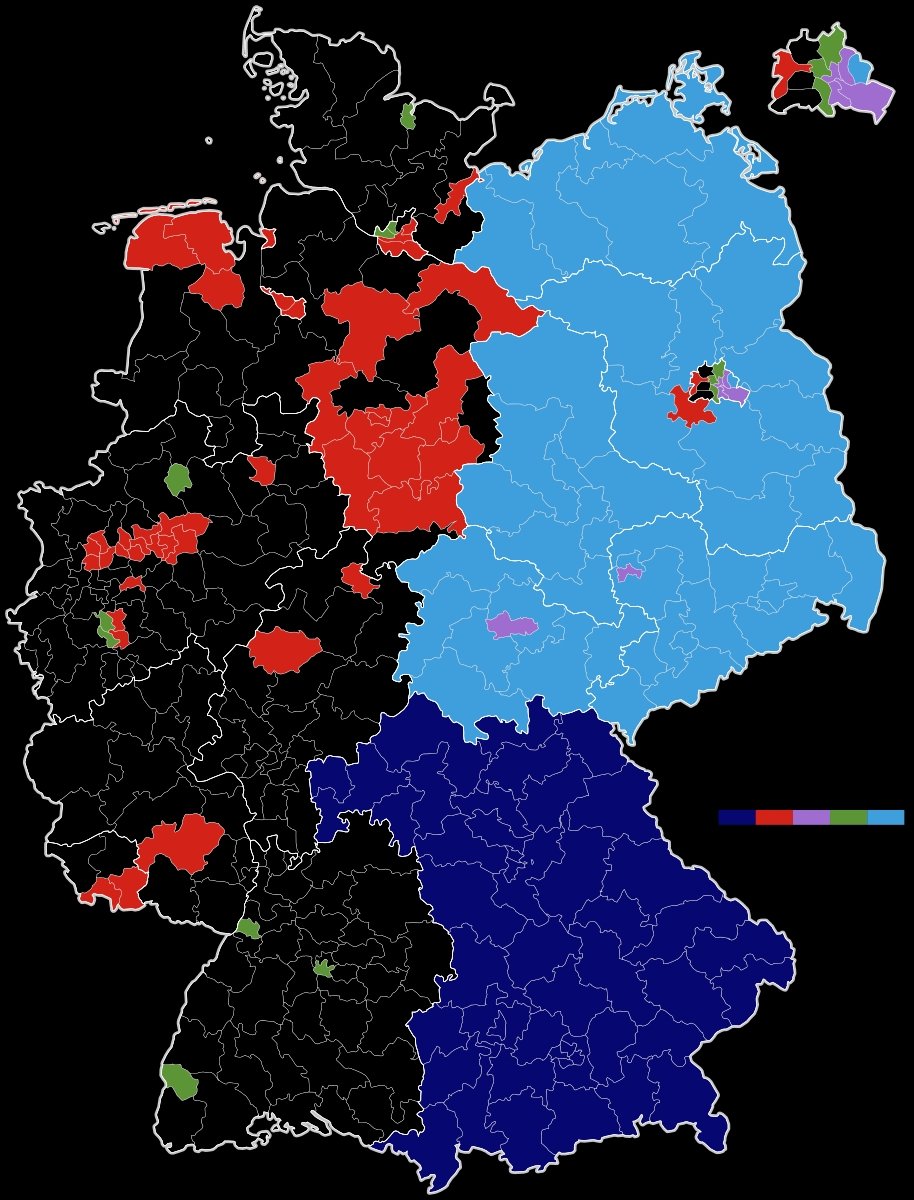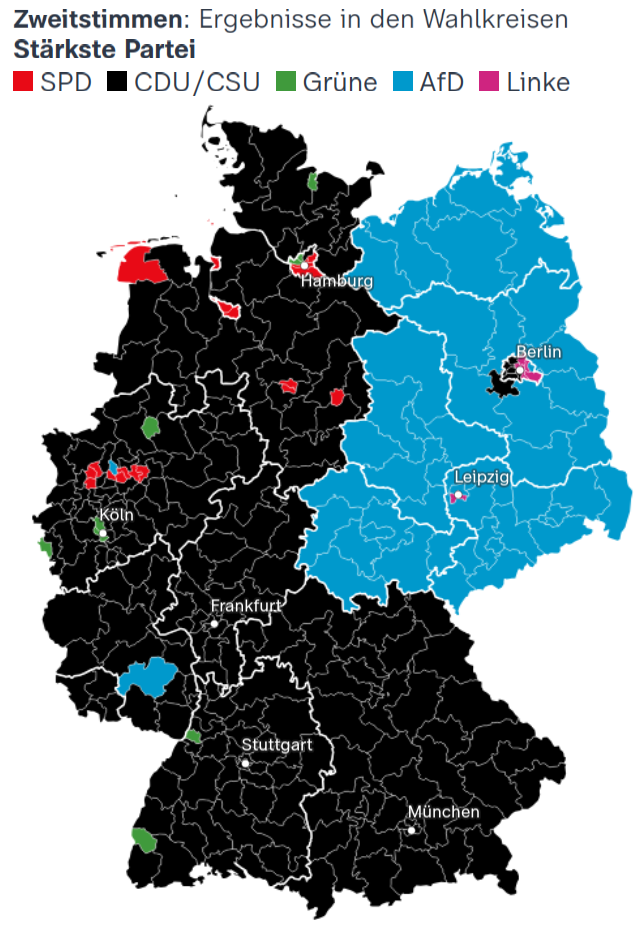Please note that in Germany you get 2 votes in the federal election. 1st is for a candidate to directly represent your district, 2nd is for a party nation wide. The map only shows the election result for the 2nd vote.
Here's another map to show the party affiliation of winners of the 1st vote:

Colors are the same, except blue. Blue represents CSU, essentially the Bavarian version of the CDU (Christian Democratic Union).
